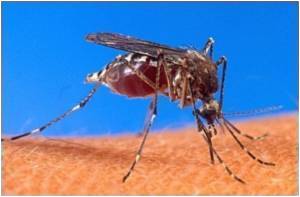
"This complication may impose an enormous social and economic burden because of the number of people at risk for severe malaria worldwide," says Guy A. Zimmerman professor and associate chair for research in the University of Utah School of Medicine's Department of Internal Medicine.
Zimmerman and colleagues in Brazil found similarities in persistence of cognitive damage in mice with documented cerebral malaria after cure of the acute parasitic disease with chloroquine- an antimalarial therapy, and children who survived the infection.
he team found high oxidative stress in mice with cerebral malaria and also found that treating them with and two antioxidant agents, desferoxamine and N-acetylcysteine prevented both inflammatory and vascular changes in the tissues of the brain, as well as the development of persistent cognitive damage.
"Our findings are exciting because the clinical implications may not be limited to cerebral malaria," says Zimmerman.
Antioxidant treatment could be vital in treating other types of severe infection and in chronic non-infectious conditions such as neurodegenerative diseases too, he added.
Advertisement
Source-ANI















